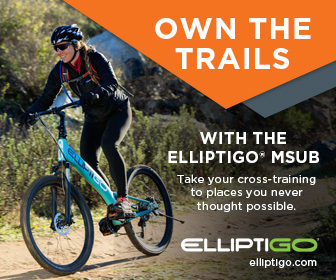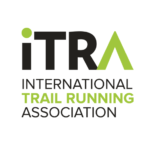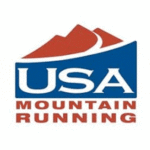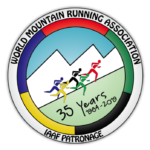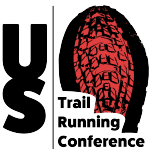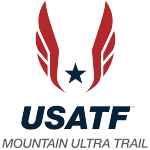
Photos and article by Peter Maksimow. Spartan Trail and Altra are American Trail Running Association switchback corporate members.
Spartan Race. You have more than likely heard of this brand name in the context of obstacle course racing (OCR). The stereotype of Spartan participants is they are muscular, athletic human specimens; half-clothed, scaling walls, tossing spears, flipping enormous tractor tires, carrying buckets full of rocks and ducking under barbwire. After establishing itself as a leader in OCR, Spartan is now expanding its portfolio of high-energy events by creating a series of trail running races aptly named Spartan Trail.
“We created the Spartan Trail Series for anyone looking to get outdoors, challenge themselves, and rejuvenate. The hills will be steeper, the ditches wider, and the views more epic. The goal: To get you off the pavement and into the wilderness.” – Spartan Trail

Amanda Basham on her way to victory in the 10k trail race.
The origins of Spartan go back less than a decade to the Green Mountains of Vermont, where the first Spartan Race was held in 2010. Spartan founder, Joe De Sena, wanted to get people out of their comfort zone. As humans lives have become overwhelmingly more comfortable, in large part due to the fast rise in technology, it has lead to weight gain, depression, loneliness and a lesser self-sufficiency that a sedentary lifestyle brings with it. As the name suggests, Spartan is modeled after the warrior society of ancient Sparta, in modern-day Greece, which emphasized duty, discipline and endurance. Overcoming the obstacles in these races is the analogy for overcoming obstacles in our current everyday lives in order to develop a capable body and mind, along with a resilient spirit, all in a communal “tribal” environment.
Since 2010, Spartan has grown to over 250 annual OCR events across more than 42 countries and has witnessed over 9 million people cross a Spartan finish line. With this meteoric rise in popularity, and as the fastest growing mass participation sport in the world, Spartan is well on its way to achieving its goal of making OCR an Olympic sport in the future.

Luis Escobar (right) brings his race director experience to Spartan Trail.
Some members of the trail running community may be skeptical about a large corporate entity like Spartan Race getting into trail running. Comments expressed on social media have included concerns like Spartan stealing participants from the smaller locally organized trail races. Luis Escobar, who is himself a small trail race director, doesn’t think this will happen. “Spartan Trail is not taking a bigger piece of the pie, they are making a larger pie and creating more customers for the smaller races.” He goes on, stating, “I know there is room for this large company and small mom and pop races to co-exist.” Confident this idea of mutual benefit, Escobar has an open invitation: “Any race director is invited to come and join me at a Spartan Trail event. My email is [email protected]. Come and spend a day or two with me and you will be pleasantly surprised by Spartan Trail.”
Spartan Trail was officially launched in 2018 with a handful of events. Fast forward to 2019, Spartan Trail has made a bigger push by expanding its trail running events further. There have been 14 races on the schedule in 2019, throughout the United States and one in British Columbia, Canada. This series will culminate on December 15th with the Spartan Trail US Championship presented by Altra in Los Olivos, California. 21 km and 10 km distances will be available for elite and age group runners. The championship boasts the largest ever prize purse for a trail race in the United States with almost $50,000 up for grabs. This is sure to attract some of the top athletes in trail running.

Spartan Trail runners enjoying the Squaw Valley trails.
Here’s how the Spartan US Trail Championship prize money breaks down:
Elite 21 km
- 1st Male/Female: $5,000
- 2nd Male/Female: $4,000
- 3rd Male/Female: $3,000
- 4th Male/Female: $2,000
- 5th Male/Female: $1,000
- 6th Male/Female: $750
- 7th Male/Female: $500
- 8th Male/Female: $250
- 9th Male/Female: $150
- 10th Male/Female: $100
Elite 10 km
- 1st Male/Female: $3,000
- 2nd Male/Female: $2,000
- 3rd Male/Female: $1,000
- 4th Male/Female: $750
- 5th Male/Female: $500
- 6th Male/Female: $350
- 7th Male/Female: $250
- 8th Male/Female: $100
- 9th Male/Female: $75
- 10th Male/Female: $50
To understand Spartan Trail, it helps to take a closer look at Spartan Races and their participants. Contrary to the stereotype in the opening paragraph, I found there is no typical Spartan Race participant. While attending the Spartan (OCR) World Championships this past September in Lake Tahoe, I discovered there were more than just super-fit athletically inclined participants in this sport. I saw people with all body types, older folks, kids, amputees, double amputees, racial minority groups, large groups of women, all competing and sharing in their suffering together. In other words, a cross section of Americans as well as runners from over 30 countries.

Athletes from 30 countries participated in the Spartan World Championships.
In addition to getting a close up look at the races, I was invited to join a speaking panel and participate in the popular Spartan Up Podcast, “The Growing Adoration of the Trail.” I joined US Trail Running Conference director Terry Chiplin, trail running legends Michael Wardian (Hoka One One) and Ian Sharman (Altra Team Elite) as well as elite road warriors Olympian Kara Goucher (Oiselle, Altra) and three time ultrarunning World Champion Camille Herron (Nike Trail).
Spartan Trail solicited input from these well known runners and has taken steps to include ideas from people around the trail running community to ensure an authentic trail racing experience at their events. “I am super amped for Spartan Trail,” said Wardian, “I think it will bring more people to trail running and increase the amount of diversity on the trails.”

Elite trail runners and influencers after the press conference and podcast.
Keeping Spartan Trail connected to the larger trail running community are race director Luis Escobar and ultrarunner Charlie Engle. Together they host the Trail Talk Podcast with Charlie and Luis. Escobar is also owner of All We Do Is Run, a trail running events outfit based in California’s Central Coast organizing races such as Santa Barbara Nine Trails and Born to Run Ultra Marathons. Engle went from drug addict to ultramarathoner, filmmaker and author, competing in the Badwater Ultramarathon, the original Eco-Challenge, and the 155-mile Gobi Desert March to name just a few.
Before every Spartan Trail race Escobar asks the participants, “By a show of hands, how many of you are first timers [to a trail race]?” He says about 80% raise their hands. Considering there were about 7,000 trail race participants to Spartan Trail events in 2019, that is an impressive amount of new trail runners.

Top 3 women and men in the Spartan Trail 10k.
Other US trail running legends who attended Spartan Trail events in 2019 included Dean Karnazes (The North Face), Altra Elite Team members Sabrina Stanley, Kyle Pietari and Amanda Basham, just to name a few. Bashsam, who won the overall women’s 10K race in Squaw Valley, mirrored Wardian’s thoughts, “There was definitely more media [compared to traditional trail races] with the podcasts and interviews going on, but I think that’s great for helping the sport [of trail running] grow.” Basham recently placed second at the prestigious CCC 100K in Chamonix, France and is excited to be competing at the Spartan US Trail Championships in Los Olivos, California next month.
Spartan Trail has its sights set on 2020 with the addition of trail and ultra running races around the globe with even larger prize purses. Their hope is that significant amounts of prize money will attract the most high caliber athletes and make possible for trail runners to truly be full-time professional athletes. While most large prize purses have traditionally been limited to ultra-distance races, Spartan Trail will continue to invest in shorter, faster, non-ultra races, 50K, half marathon and 10K; however, they will also raise the bar for the ultra scene in 2020. Their willingness to include input and advice from the trail running community, along with the broad accessibility of shorter races, should help Spartan Trail achieve their goal of growing the sport.


